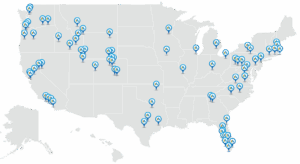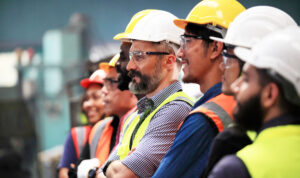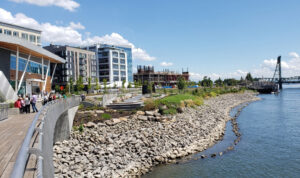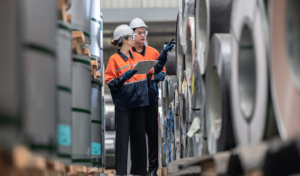Soil Remediation at Former Metals Smelting Site
Confidential International Mining Company • Jacksonville, FL
Solution Overview
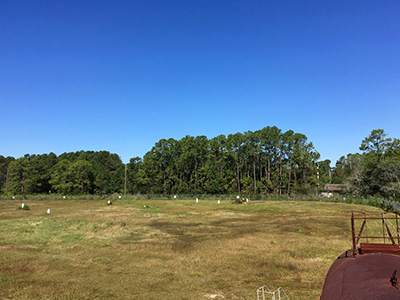
Client:
Confidential International Mining Company
Business Challenge:
- Soil and groundwater contaminated with lead and arsenic due to former site activities
Solution:
- Develop a soil treatability program customized to the unique properties of the on-site materials
- Accelerated treatment to cure and neutralize acidic/low pH groundwater with high levels of soluble metals
Results:
- Treatment of over 173K tons of contaminated soil for disposal as non‑hazardous
- Recycling of over 43 tons of lead
- Accelerated treatment of groundwater
- No further action (NFA) status achieved for both soil and groundwater, with pending removal of use restrictions for the site
Challenge
The former smelting facility had been inactive since 1982 and was closed under Resource Conservation and Recovery Act (RCRA) closure in 1990. The closure entailed the removal of lead-containing waste along with the installation of a slurry wall and concrete cap. The engineered cap and slurry wall were constructed to encapsulate residual lead- and arsenic-impacted soil and slag within a 7-acre portion of the property. The owner wished to eliminate the RCRA permit and associated long-term obligations.
Solution
In 2007 and 2008, Apex Companies conducted site investigations to characterize the concentrations and extent of the lead- and arsenic-impacted soil at the site. In 2008, a plan was developed to remediate the site and remove the RCRA permit. Apex conducted treatability tests to determine the most cost‑effective method for stabilizing these materials for off-site disposal. Multiple formulas were developed due to the complex nature and variability of the waste blends in the soils. Apex designed site remediation included the excavation, treatment, and disposal of lead- and arsenic-impacted soil using the stabilization formulas established by Apex. Soils were blended with the stabilizing reagents in a pugmill. Slag, bullets, and other small lead particles were treated with the soil, while the larger lead pieces were recycled. The stabilization process successfully treated approximately 173K tons of soil and allowed for the recycling of 43 tons of lead. The Soil Operable Unit was granted NFA without controls in January 2016.
During the investigation phase, Apex identified an area of low pH soil and groundwater which was the result of improper handling and disposal of lead acid batteries. Acidic soil impacts extended to a depth of over 20 feet and a plume of low pH groundwater with elevated sulfate and acid soluble metals extended to the downgradient property line. Apex obtained off‑site access to install a monitoring well on the adjacent Florida Department of Transportation (FDOT) easement.
In-situ treatment design to neutralize acidic soil and groundwater consisted of the injection of sodium bicarbonate solution and simultaneous extraction of groundwater to promote distribution of the solution. A series of four-foot wide by 20 to 70-foot-long injection/extraction trenches were installed on-site for delivery of the neutralizing solution and groundwater extraction. Over 50K pounds of sodium bicarbonate were injected over a period of 370 days. Efforts were successful in achieving neutralization goals in plume of lower pH groundwater plume, however due to limitations on delivering neutralizing solution to the acid source area, some residual acid area source remains.
A background groundwater study was conducted to determine site-specific background levels of arsenic, iron, manganese, color, and odor in groundwater. After decades of being encapsulated within a slurry wall, several years of dewatering during excavations, and the introduction of non-native backfill soils below the water table, time was needed for the groundwater flow to come to equilibrium and the plume of residual dissolved metals and other constituents of concern to develop and come to equilibrium.
The Groundwater Operable Unit was granted NFA with controls in April 2021, contingent upon the execution of groundwater use restrictions.
Results
In total, more than 173K tons of soil was successfully treated and over 43 tons of lead was recycled. Soils at the site meet cleanup standards for residential land use. Apex also provided groundwater neutralization and restoration at the site to near background levels for acid soluble metals and clean up criteria for lead and arsenic. Upon completion of administrative requirements associated with groundwater use restriction on the FDOT right of way (ROW) the permit will be closed out with no long‑term operations and maintenance (O&M) requirements or reporting.

